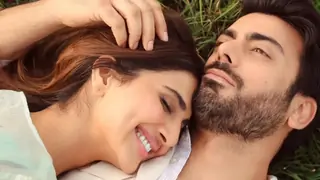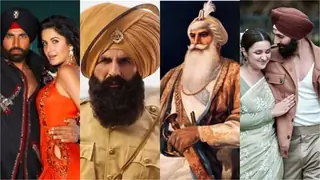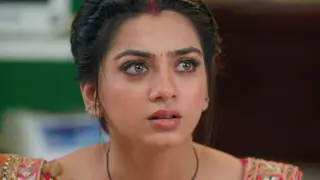'Caste-based discrimination still alive in India'
Panaji, Oct 12 (IANS) After shooting in eight states and across four different religions, a new documentary film suggests that caste-based discrimination is alive and kicking in different pockets of India.
Published: Friday,Oct 12, 2007 07:38 AM GMT-06:00
Panaji, Oct 12 (IANS) After shooting in eight states and across four different religions, a new documentary film suggests that caste-based discrimination is alive and kicking in different pockets of India.
'India Untouched', a 108-minute documentary by Stalin K. in Hindi, Bhojpuri, Gujarati, Punjabi, Tamil, Telugu and Malayalam with English sub-titles, seeks to expose the underbelly of social discrimination across various religious groups in India.
Director Stalin, a Gujarat-based human rights activist, spent four years travelling across India to study what he called 'the continued oppression of Dalits, the socially disadvantaged who suffer under a 4,000 year-old' system of discrimination.
Asked what led him to make the film, Stalin said: 'Denial! I was sick and tired of people denying the existence of caste or caste-based prejudices.
'The middle classes are more prone to this denial and they are the ones who are most vocal - the writers, the journalists, the policy pushers. My film is dedicated to all those who are in denial of the fact that our lives continue to be governed by age-old caste practices that are discriminatory.'
The film introduces leading Benares scholars who interpret Hindu scriptures to mean that Dalits 'have no right' to education, and Rajput farmers who proudly proclaim that no Dalit may sit in their presence and that the police must seek their permission before pursuing cases of atrocities.
The film captures many 'firsts-on-film,' such as Dalits being forced to dismount from their cycles and remove their shoes when in the upper caste part of the village. It also exposes the continuation of caste practices and untouchability in Sikhism, Christianity and Islam, and even amongst the communists in Kerala.
'Even though we are stepping into the 21st century, our social and political relationships with others continue to be governed by stupid and illogical notions and traditions of 'purity', 'pollution', 'inferiority' and 'superiority',' he said.
Said Stalin: 'The film has been very well-received, especially by urban youth. Since its premiere in April this year, more than 50 different organisations and individuals across 10 states have organised screenings of this film and I have been personally present in 32 of them.
'From the discussions after the screenings and the constant flow of e-mails, it seems like there is an acceptance and willingness to engage with the issue,' he added.
'I have received several e-mails thanking me for making the connection between traditional forms of untouchability, with the desire to marry within ones own caste,' said Stalin.
'Subtle casteism is much more dangerous because it's difficult to confront or argue against things that are not blatantly in your face. Today's urban middle class is too sophisticated to practise blatant casteism. But, again, their desire and tradition of wanting to marry only within their caste or sub-caste is not seen as blatant casteism,' he argued.
Stalin said it was not easy to capture on film practices like separate cups for Dalits in a teashop.
'Getting the men from the Rajput community to talk of how they use violence and subjugation to perpetuate caste hierarchy was very challenging,' Stalin told IANS.
Stalin noted that among Dalits themselves, sub-castes practised untouchability on the lower sub-castes, and a Harijan boy refuses to drink water from a Valmiki boy.
He spoke of how in hallowed academic institutions like Jawaharlal Nehru University in New Delhi an 'upper' caste youth builds a partition so as not to look at his Dalit roommate in the early morning.
But the film highlights signs of hope too: the powerful tradition of Dalit drumming is used to call people to the struggle, and a young Dalit girl holds her head high after pulling water from her village well for the first time in her life.
Stalin is co-founder of Drishti - Media, Arts and Human Rights, convener of the Community Radio Forum-India and the India director of Video Volunteers.
He plans films on media and god next.
'Merely exposing some injustices or filming some endangered animals is not enough in today's day and age of a million TV reports a month. Documentary filmmakers will have to discover new languages and treatments to tell their stories,' Stalin argued.
Join Our WhatsApp Channel
Stay updated with the latest news, gossip, and hot discussions. Be a part of our WhatsApp family now!
Join NowYour reaction
 Nice
Nice Great
Great Loved
Loved LOL
LOL OMG
OMG Cry
Cry Fail
Fail















1 Comment